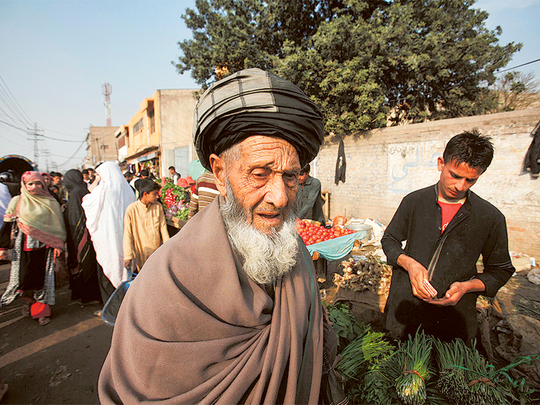
Islamabad: The Pakistan government has launched a nationwide campaign to verify and update the data of around 1.4 million registered Afghan refugees who will receive new smart identity cards.
The large-scale verification of refugees is being undertaken after 10 years in the country to boost Pakistan’s efforts to enhance protection for refugees. The Chief Commissionerate for Afghan Refugees (CCAR) at the Ministry of States and Frontier Regions (SAFRON) and the National Database and Registration Authority (NADRA), and UNHCR, will be involved in the verification and document renewal process.
DRIVE verification process
The Documentation Renewal and Information Verification Exercise (DRIVE) was launched in Islamabad on April 15. Federal Minister for SAFRON Mehboob Sultan, the UNHCR representative Noriko Yoshida, and Chief Commissioner for Afghan Refugees Saleem Khan attended the ceremony. During the six-month exercise, NADRA will verify and update the data of registered Afghan refugees who currently have a Proof of Registration (PoR) card with an expiry date of 31 December 2015.
Around 600 staff members will be working at 35 DRIVE verification sites across the country, utilising mobile registration vehicles, to support refugees throughout the exercise. Measures have also been put in place at all sites to mitigate COVID-19 risks.
The new smartcards, which will be valid for two years, would contain biometric data of the Afghan refugees. The ID cards would also be technologically compatible with systems used in Pakistan to authenticate the identities of nationals to access services.
Refugees to have faster access to services
With the new smartcards, Afghan refugees will have faster and easier access to different services. “The DRIVE exercise is a leap forward for everyone. This step will allow refugees to have better, faster and safer access to services, including schools, hospitals and banks,” Yoshida said.
Besides verifying existing data, the verification process would also record Afghan refugees’ skill sets, level of education, socio-economic circumstances. Detailed information about refugees’ educational and professional backgrounds would allow for tailored refugee assistance in Pakistan and for those who may return voluntarily to Afghanistan in the future.
“Pakistan is a global leader in refugee protection and continues to pioneer efforts to find solutions and support inclusion for people forced out of their homes by a prolonged conflict,” said Indrika Ratwatte, UNHCR regional director for Asia and the Pacific.
Pakistan hosting refugees for 4 decades
Pakistan has been hosting Afghan refugees for four decades, federal minister Sultan said. “It’s crucial to update the data of Afghan refugees to understand their situation better,” as a lot has changed since the last verification activity 10 years ago. “As the country hosting one of the most protracted refugee situation in the world, Pakistan has strived to play its part in assisting and protecting refugees” Sultan said urging the international community “to come forward and share the responsibility and help find solutions.”
Pakistan is home to an estimated three million Afghans, 1.4 million of whom are documented, making Pakistan one of the largest refugee-hosting nations in the world.








